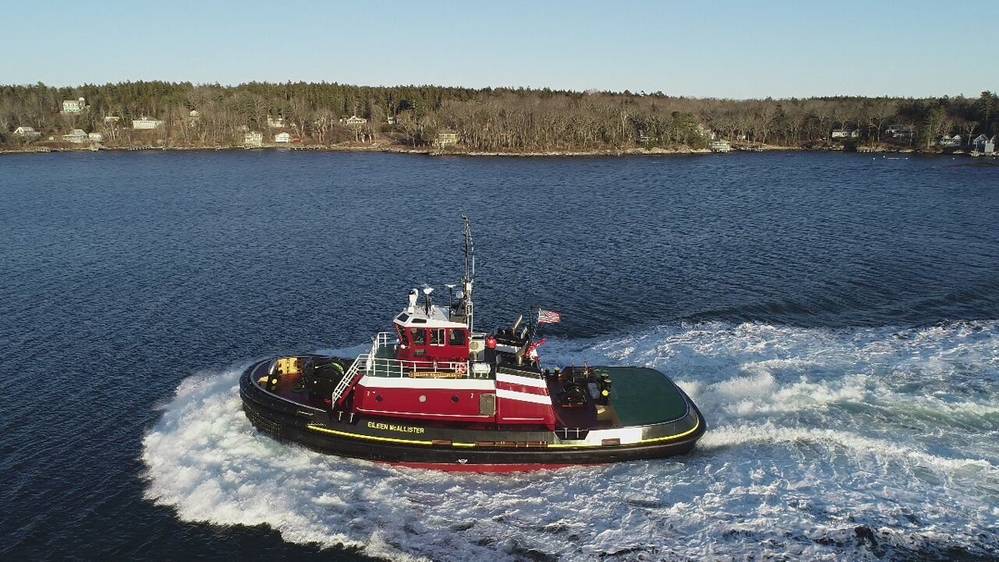McAllister Towing

New York-based McAllister Towing is a family-owned marine transportation company founded in 1864. Today, it operates a modern fl eet of more than 60 tugs, barges, launches and ferries in over 13 locations along the U.S. East Coast from Portland, Maine to San Juan, Puerto Rico. And its fl eet is about to become even more modern. In September McAllister announced it signed a contract for the construction of two new tugs to be built at Washburn & Doughty Associates (W&D) in East Boothbay, Maine, with an option for two additional vessels.
The 93- by 38-foot tractor tugs will each offer 84 metric tons bollard pull, further enhancing McAllister’s East Coast fl eet with the ability to service its customers largest ships and bring McAllister’s tractor fl eet to 39 tugs with a total of over 182,000 horsepower, the company said. “McAllister Towing is expanding into the LNG and Windfarm markets and at the same time many of our customers are seeking services for larger capacity container vessels which makes the higher horsepower of these newbuilds necessary for our fl eet’s abilities, said Capt. Steven Kress, McAllister’s Vice President of Operations.
Each 6,770-hp tug will be powered by 3516E Tier 4 Caterpillar engines with twin Schottel SRP 490 Z-drive units and Markey winches on the bow and stern. Sister vessel Eileen McAllister, delivered in 2020, achieved over 84 metric tons during her ABS bollard pull certifi cation, and McAllister said it anticipates the same or better performance.
“The Eileen since delivery has performed exceptionally in Port Everglades, Fla., and the proven design and build will suit our other ports very well,” Kress said.
The fi rst new boat is slated for delivery in November of 2022. The newbuilds will be the third and fourth tugs built at W&D for McAllister, bringing the total number of tugs in McAllister’s fl eet built at W&D to seven.
“America currently has a very robust economy and that begins in the ports where goods are imported and exported. McAllister is very proud to be a major contributing factor to that success. COVID restrictions hampered ship arrivals and port production, and hopefully once the backlog of vessels is cleared and the box store shelves replenished, we can look towards lower infl ation rates and further growth,” Kress said.